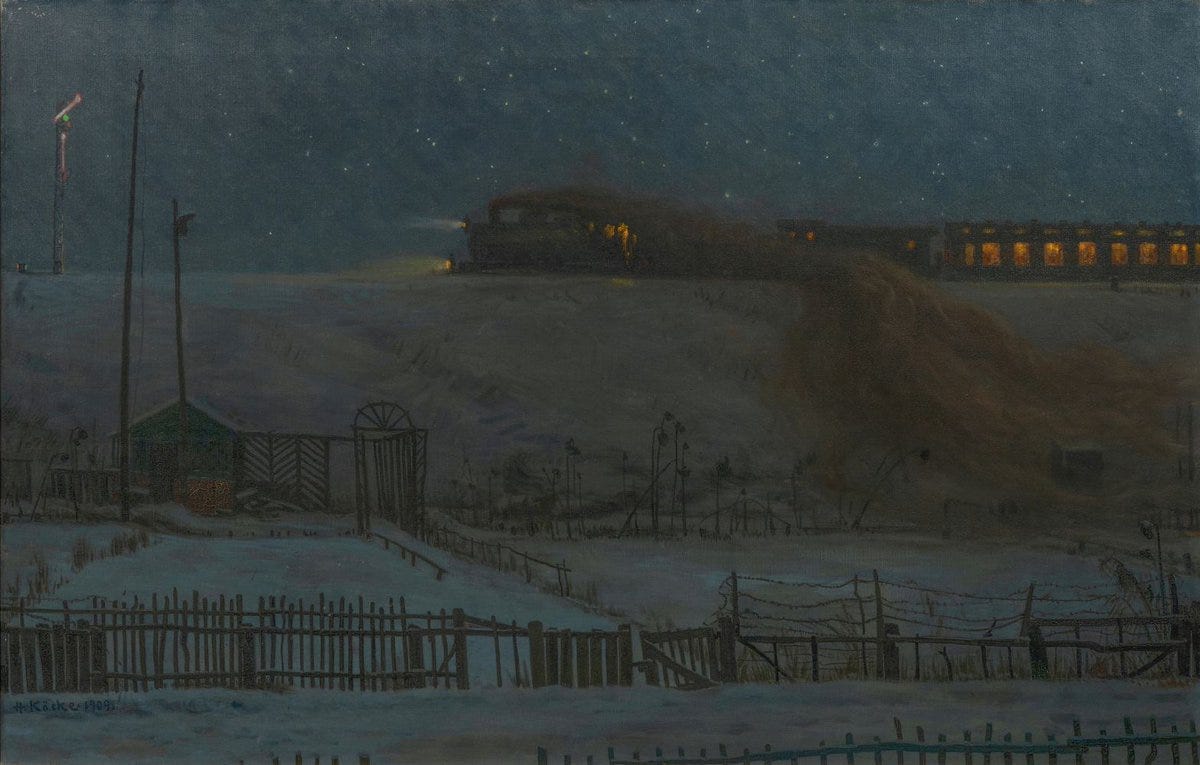Emergence Is Not Engineering
Stuart Kauffman, Andrea Roti | Factoids | A monopoly wrapped in a monopsony; Starbucks v the unions; Getting the future wrong.
…
Quote of the Moment
There can be no theory of everything that entails all that comes to exist. We face a third major transition in science beyond the Pythagorean dream that ‘all is number’ echoed by Newtonian physics. However, we begin to understand the emergent creativity of an evolving biosphere: emergence is not engineering.
| Stuart Kauffman, Andrea Roti, A Third Transition in Science?
…
Lamentably, business remains grounded in a slow-to-change mid-twentieth century ‘scientific management’ zeitgeist. What we have learned from the sciences since then — emergence and complexity, network science, and behavioral economics readily come to mind — has only made the slightest dent in how businesses are run.
The fact is, despite what we have learned in the last 100 years about the world and human nature, businesses are organized around premises and principles that are, at best, arbitrary vestiges of bronze-age hierarchies, and, at the worst, mechanisms intended to coerce and control the majority for the benefit of a few.
As Clay Shirky once wrote, ‘institutions will try to preserve the problem to which they are the solution’.
…
I am still on a semi-vacation, so posts are thinner and more widely spaced. Apologies.
Factoids
Just four companies — Walmart, Kroger, Costco and Albertsons — account for about half of all US grocery sales.
| Danielle Kaye (see Elsewhere, below)
related:
Costco sells half the world’s cashews.
…
8 of the top 11 child care businesses in the country are now owned by private-equity firms.
An industry being stripmined by those firms and consigning childcare workers to poverty.
…
56 percent of people say they often get their news from a smartphone, computer or tablet.
| Pew
Only 56 percent?
…
A majority of dog owners celebrate canine birthdays, and nearly two-thirds report that they take more photos of their dogs than of family members.
I am on the ‘that’s sad’ side of this issue, I admit, not the ‘how cute’ contingent.
Elsewhere
A monopoly wrapped in a monopsony.
In A Trial Asks If Grocery Rivals Merge, Do Workers Suffer?, Danielle Kaye looks in the various suits brought by state attorneys-general and the Federal Trade Commission to block the Kroger/Albertsons merger.
Following the pattern of earlier grocery chain mergers, Albertsons and Kroger want to merge, they say, to better compete with Walmart and Costco. It would become the largest grocery chain. But similar mergers in the past have led to negative consequences for workers, because the merged company spins out hundreds of stores to third parties ostensibly to minimize consolidation. But in fact, historical examples show that these third parties often collapse, and workers are harmed. The US Federal Trade Commission is arguing that this merger will not only harm customers through the monopolistic practices of grocery giants, but for one of the first times it is arguing that the monopsonist power following such a merger will directly harm unionized (and non-unionized) workers.
If such large grocery chains are bad for customers and workers, why doesn't the FTC break up Walmart, or any chain that reaches some upper bound?
…
Starbucks versus the unions, once again.
Matt Bruenig reports on the state of Starbucks unions: workers there have unionized 481 stores with more than 11,000 employees in less than three years. He writes: 'shows how American labor laws, and the bureaucracy they require, make mass unionization impossible unless rules for certifying unions and negotiating contracts are simplified and streamlined.'
He details the bottleneck that Starbuck's intransigence has created for the NLRB and labor activism, and how a Harris administration could turn that around, legislatively.
'Progressives have been pressing for the Protecting the Right to Organize Act, which would prohibit anti-union activity by employers. That legislation is sorely needed.'
'But even more important is to revive and pass the Employee Free Choice Act, which would allow unions to be certified if a majority of workers sign certification cards. This would assess workers’ support or opposition to unionization without requiring the government to run costly elections. The legislation would also allow an arbitrator to approve first contracts when bargaining breaks down, preventing companies from dragging out negotiations endlessly, refusing to sign collective bargaining agreements and then assisting efforts to decertify unions — as has been the case with Starbucks.'
Starbucks is suffering from overly-complex drink orders taking too much barrista time. They are playing the same hand in reverse with the NLRB, bombarding regulators with bazillions of complaints and legal actions.
…
Getting the future wrong.
Predictions for the Workplace of 2025, Revisited | Lynda Gratton
What is totally absent in this piece is the following statement: the purpose of creating future scenarios is not to accurately predict the future, but to raise questions that help people think about how to pay attention to, and take action, as the future emerges.


